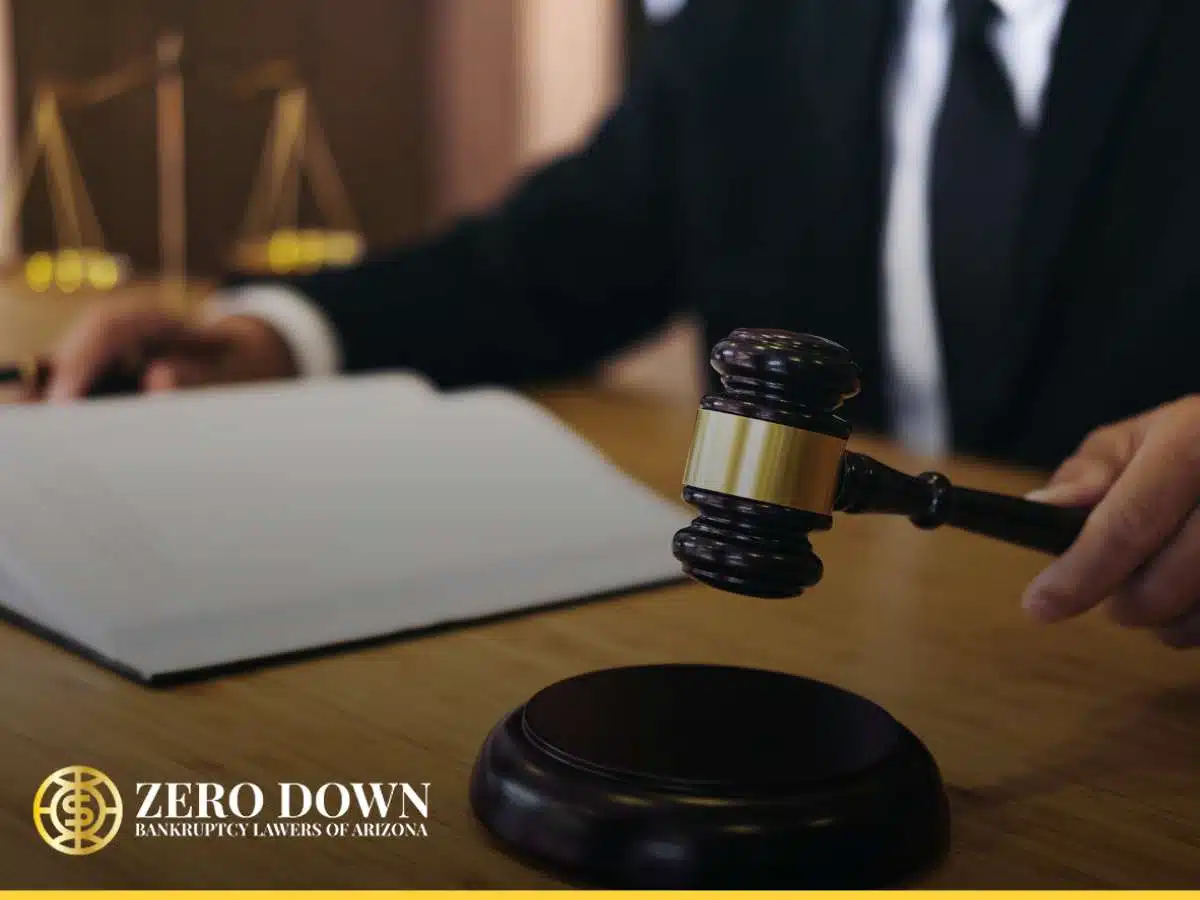Rudy Giuliani is no stranger to the headlines. Whether he’s dripping dark mysterious fluids or unzipping his fly in a Sacha Baron Cohen film, Giuliani knows how to keep the public on its toes. After being ordered to pay millions from a defamation lawsuit regarding the 2020 presidential election, Rudy Giuliani declared chapter 11 bankruptcy. Bankruptcy petitions require that debtors submit a great deal of information to the court regarding their financial situations, and that information can be reviewed by their creditors as well. Many creditors will take all bankruptcy court filings at face value because they have no reason to suspect that the debtor is lying. However, Giuliani’s creditors have had some issues with the information he’s provided to the court. In January 2024, he filed information with the court stating that he only had a net income of $2,308 per month after deducting $40,000 per month in expenses.
Because of their doubts surrounding Giuliani’s financial statements, his creditors filed a request to retain and employ Global Data Risk, LLC as a specialized forensic financial advisor. Their services cost $275 per hour, and include:
- Identifying and tracing Giuliani’s income and assets;
- Investigating the sources of Giuliani’s assets and liabilities;
- Analyzing Giuliani’s budget and expenses;
- Investigating Giuliani’s ownership of or interest in potential assets like corporations, trusts, and real estate;
- Identifying and investigating prepetition and postpetition transfers of Giuliani’s assets;
- Assisting in the evaluation and analysis of avoidance actions, including fraudulent conveyances and preferential transfers;
- Providing fact and expert witness testimony, reports, and declarations in connection with this chapter 11 bankruptcy case or related adversary proceedings;
- Any other services deemed necessary and generally consistent with the role of a specialized forensic financial advisor for this chapter 11 bankruptcy case.
Personal Bankruptcy- Chapter 11 Or Chapter 7
Chapter 11 bankruptcy is popular among businesses and other organizations because it allows the debtor to stay open and hopefully reemerge as a financial success. If you hear of a major corporation declaring bankruptcy in the news, odds are that they filed for chapter 11 bankruptcy, because chapter 7 bankruptcy requires business debtors to close permanently. Chapter 11 bankruptcy is available to individuals, but it isn’t commonly used for personal bankruptcy. Chapter 11 bankruptcy is complex and time-consuming, which translates to costly attorney’s fees and fees for other professionals who get involved. Most individuals get everything they need out of bankruptcy through either chapter 7 or chapter 13, with chapter 7 being the more popular of the two. But Rudy Giuliani’s circumstances are unique. His chapter 11 bankruptcy filing comes following a defamation suit related to the 2020 presidential election. He accused two Georgia poll workers of tampering with the votes to sway the election results. They sued him for defamation and were eventually awarded $148 million at trial. These are the rare types of situations where chapter 11 bankruptcy becomes necessary for an individual.
A key feature of chapter 11 bankruptcy is the creditor committee. These are the debtor’s top creditors, and they have a say in how the bankruptcy will enfold. They can vote to approve or deny proposals by the debtor and submit their own, if necessary. Here, the creditors were hesitant to believe the information Giuliani supplied to the court, and thus sought out assistance from a forensic financial accounting firm. Giuliani’s team clearly opposed the appointment, as did the trustee assigned to the case. However, the judge ruled in the creditors’ favor and allowed them to retain the firm for this chapter 11 bankruptcy case.
When a debtor isn’t involved in litigation worth hundreds of millions of dollars, they can usually have their needs met by other types of bankruptcy. Chapter 7 is the most commonly filed chapter of bankruptcy in the United States. These types of cases will typically last somewhere between 3 and 6 months. Creditors are not usually high involved in a chapter 7 bankruptcy filing. They can attend the 341 Meeting of Creditors to ask questions and make objections, and will have 60 days after the hearing to initiate an adversary proceeding, if so desired.
Reasonable Expenses In Bankruptcy
One of the tasks that Global Data Risk, LLC was retained to complete is analyzing Giuliani’s budget and expenses. He claims to only have a net income of $2,308 per month after deducting $40,000 worth of expenses. A bankruptcy debtor is supposed to maintain a reasonable standard of living if they supposedly can’t afford to pay back their creditors. Many of the expenses that the court considers necessary to pay in the wake of a bankruptcy filing are included in the means test. This is a test used to calculate a bankruptcy debtor’s disposable monthly income, or how much money they have left at the end of the month that could theoretically be used to pay off debts. The means test states that debtors should use the IRS national standards when deducting their monthly expenses from their average income. Some of those include:
- Food: $458 for an individual, $820 for two people, $977 for three people, and $1,143 for four people
- Apparel & services: $87 for an individual, $157 for two people, $187 for three people, and $300 for four people
- Housekeeping supplies: $44 for an individual, $75 for two people, $83 for three people, and $82 for four people (The IRS website doesn’t include an explanation for why housekeeping supplies are $1 less per month for a family of three versus a family of four)
- Personal care products & services: $48 for an individual, $80 for two people, $87 for three people, and $97 for four people
- Miscellaneous expenses: $171 for an individual, $279 for two people, $343 for three people, and $405 for four people
If the household has more than four individuals, the IRS allows that the family add $386 per month to their total monthly expenses per additional family member. If a debtor spends more than the allowed expenses per month, they can expect their finances to be reviewed in further detail. Here, Giuliani is clearly spending more than the IRS national standards. The financial forensic account firm will be reviewing his statements to make sure his budget is reasonable under his specific circumstances.
Filing For Personal Bankruptcy For Zero Dollars Down In Phoenix & Tucson
When you have a case more aligned with the standard bankruptcy debtor and retain skilled bankruptcy counsel for your case, hiring a financial forensic accounting firm won’t be necessary. Your attorney can make sure your case isn’t delayed for months and subject to additional hearings that you aren’t already required to attend as a condition of filing. Don’t assume that you can’t afford the up-front costs of filing for bankruptcy with an experienced lawyer to guide you- our firm offers payment plans starting as low as Zero Dollars Down for eligible clients. File your case and gain the benefits from the automatic stay without upfront costs. Your payment plan is payable for 12 months after filing with 0% interest. Regain your footing and protect your assets from creditors. If you’re considering filing for bankruptcy in the Phoenix or Tucson area, don’t hesitate to contact us for your free consultation- call 602-609-7000.
Arizona Offices
Phoenix Location:
343 W Roosevelt Street, Suite #100
Phoenix, AZ 85003
Email: [email protected]
Phone: 602-609-7000
Mesa Location:
1731 West Baseline Rd., Suite 101
Mesa, AZ 85202
Email: [email protected]
Glendale Location:
20325 N 51st Avenue, Suite #134
Glendale, AZ 85308
Email: [email protected]
Tucson Location:
2 East Congress, Suite #900
Tucson, AZ 85701
Email: [email protected]











